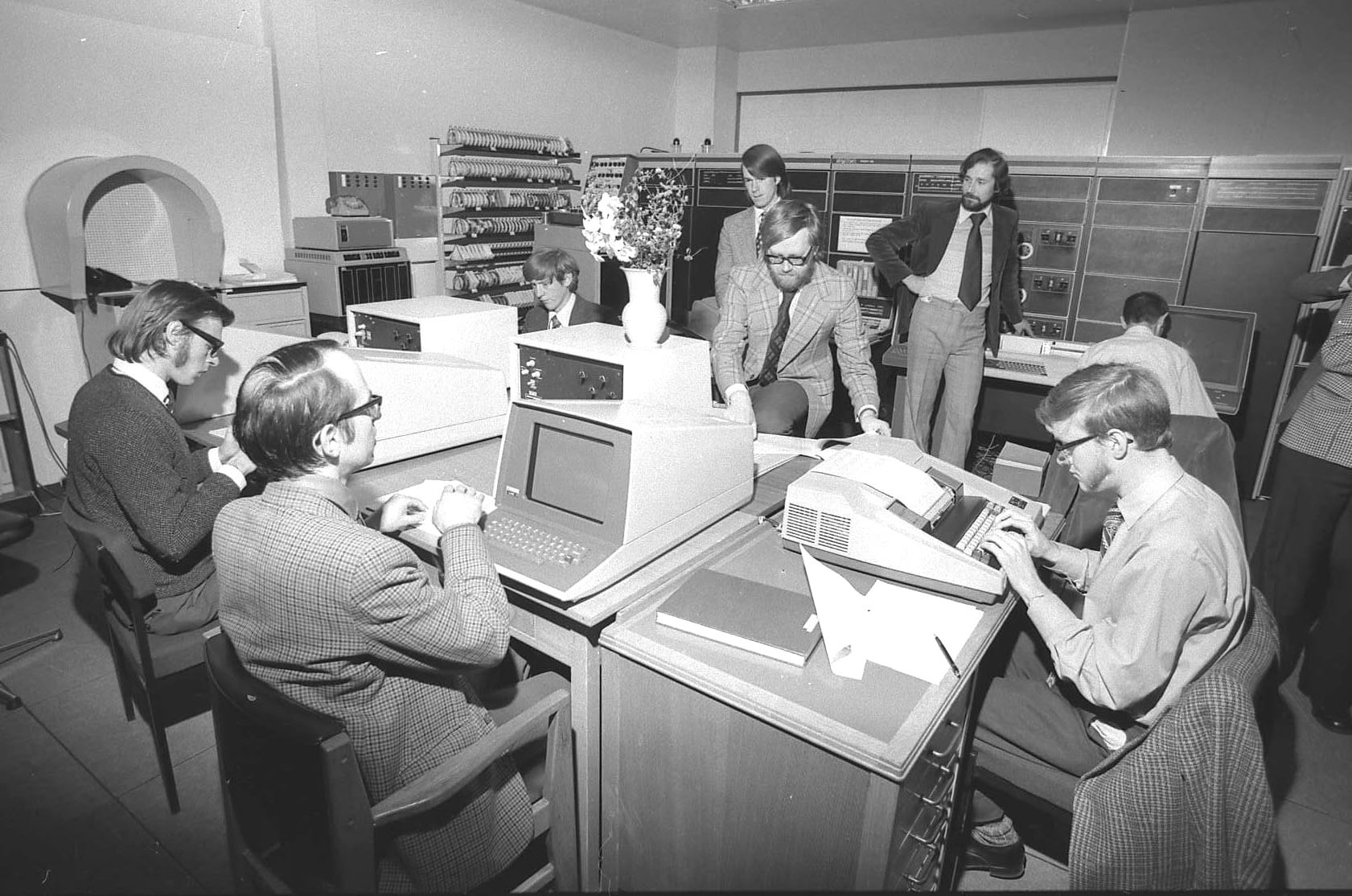
In the early 1980’s I learnt to programme on a Perkin Elmer Interdata 8/32 computer, much like the one pictured. We wrote code, which then took hours to compile before it could run the programme we had just written. The programming language, COBOL, was updated every decade and continued in use for over 50 years. In my first job I used VisiCalc and soon after Lotus 1-2-3. The Telex machine clunked away in the corner throughout the first decade of my work life. The most amazing piece of kit to come into the office was the fax. Careers were for life. The Government’s firm hand directed industrial policy. The welfare state made us feel safe.
Then late in the 1990’s something started happening. The networked desktop PC was hooked up to the Internet and we discovered the World Wide Web.
We are now living in compressed time. The speed and depth of change resulting from what is starting to be called the Fourth Industrial Revolution is almost beyond comprehension. It certainly seems to be challenging our policy makers, few of who, anywhere, offer a vision of what the future of work may be and what role Government will play.
Inefficiencies in almost all areas of commerce are being addressed. Layers of unnecessary friction are removed from transactions. Repetitive processes are automated. Supply chains are compressed and distribution optimized. Ecommerce replaces retail.
The British Retail Consortium forecasts 900,000 jobs will be lost by 2025. Others point to the threat to 1.5 million UK jobs in the transport sector resulting from autonomous vehicles. A Deloitte’s report that looks at automation claims 11 million jobs will disappear by 2036. These are people who will lose their jobs through no fault of their own.
These losses are likely to impact the most deprived areas the worst. The BRC’s numbers suggest that Wales will be hit hardest with 100,000 jobs lost as 10,000 shops close. That’s 7 percent of the workforce without further losses from the 3.5 percent in the transportation sector.
The 30 plus percent of the workforce securely employed in the Public Sector, funded by a diminishing private sector must surely see the unsustainability of their positions.
For those outside of the economic powerhouses like London the era of 20% unemployment is rapidly approaching. The Capital will continue to draw economic activity away from the surrounding areas, sucking out wealth and increasing inequality.
The welfare state is no longer economically capable of providing a solution to the future of work. Despite the current measures of austerity the proportion of welfare expenditure is greater than it was a decade ago. The calls for a universal basic income will become louder and sound more credible.
How can individuals combine and cooperate to compete in this new society? Previously workers came together to form trade unions, but when an ‘employer’ maybe a ‘platform’ based in Silicon Valley or elsewhere, there is little potential to collectively bargain. Small cooperative, buy local movements have helped transform communities, but lack any method to coordinate and scale from a single location.
Indycube, the alternative model.
1. Indycube addresses the draw of economic growth towards a capital at the expense of all other areas.
2. Indycube addresses the impact of greater regional unemployment by capturing people to work where they live.
3. Indycube provides an alternative to the constraints of the business ‘norm’ and is accommodating the evolution of business and work practices.
4. Indycube is addressing future proofing of employment and industry sectors by allowing flexibility, creativity and responsiveness to the changing environment, bridging inequality issues caused by gender, disability and child-care.
5. Indycube regenerates at a local level, touching the parts others wouldn’t bother with.
Indycube is a proven model that demonstrates sustainable business growth, galvanizing communities.
Indycube is a community of coworking. Initially established in Wales, Indycube now has 25 locations in Wales and has opened it’s first location in England. Indycube is a member owned organization, with few employees and no head office.
Beyond the simple provision of a desk, coffee and an internet connection, Indycube creates a community. The community connects people beyond their physical location through the use of social platforms, e.g. someone in Indycube Haverfordwest can introduce themselves to members across all other locations, say what their skills are and invite people to collaborate on projects. All members can collectively buy products and services, organize events and share experiences.
People can work where they live.
Indycube Ventures looks for entrepreneurs within the community that have scalable, global potential businesses and, in exchange for equity, helps them develop and grow. It does this by bringing together appropriate mentors, support service providers and technology and market experts. Indycube takes no fees and only benefits from a future equity event - sale or dividends.
Indycube Ventures is owned by the mutual entity, so the whole community shares any individual success.
Indycube sets itself apart from other coworking organizations in that it is neither a commercially owned property business, nor a Government funded venture. Both these models are difficult to sustain. One is focused on utilization and servicing debt or paying rent, the other requires constant funding from Government to survive.
Now equipped with no more than a notebook computer and a mobile phone, the gig-economy allows the individual to live and work wherever they like. This can be embraced or feared, but the opportunities will continue to exist for the brightest with the lowest overheads. 85% of the new jobs created in the UK were in firms with fewer than 50 staff, suggesting new openings are dramatically more likely in small organizations.
The Indycube model enables the promotion of innovation and inventive businesses supporting the sustainability of local communities.
All material copyright David Hulston Associates Ltd. @davidhulston1